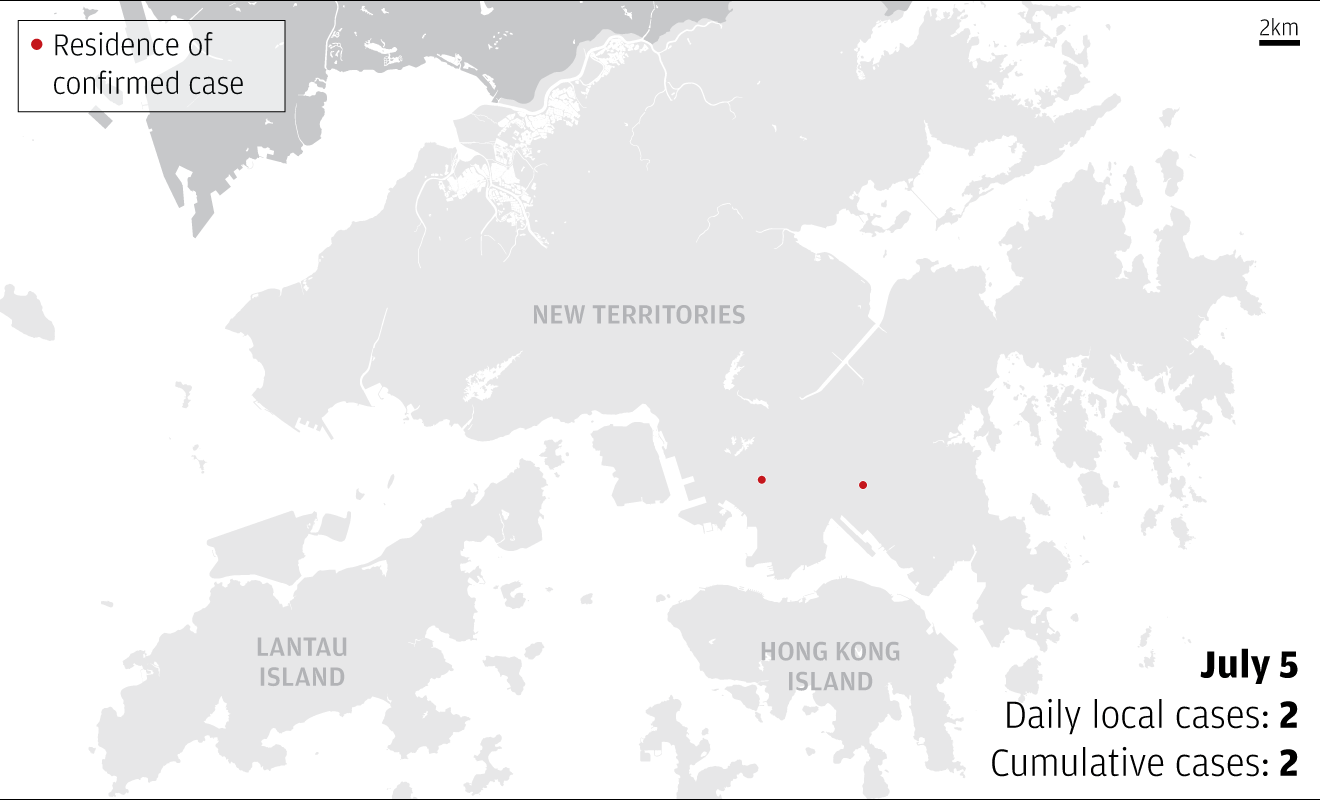University of Hong Kong microbiologist Professor Yuen Kwok-yung makes chilling prediction and says winter wave could see tens of thousands fall ill.
The coronavirus could kill 1,000 residents and leave tens of thousands sick this winter if holes in Hong Kong’s defences are not plugged, an infectious disease expert has warned, as the city recorded seven new Covid-19 cases on Sunday.
Professor Yuen Kwok-yung made his chilling prediction on a radio programme, as he said the city was still experiencing its third wave of infections, and needed to keep social-distancing measures in place until a mass vaccination could take place in September next year, at the earliest.
The University of Hong Kong microbiologist, who advises the government on the virus, also called for mandatory testing for those experiencing symptoms associated with the disease, and urged the city’s restaurants and bars to take infection control seriously.
“If we don’t have targeted measures on the coronavirus, then we could see tens of thousands of people infected. Deaths could also easily exceed 1,000,” he said.
Hong Kong third wave
Tracking the spread of local Covid-19 cases

Among the new cases were four people linked to previous local cases, including two 52-year-old men living at a care home for the disabled, the Home of Treasure, in Kwai Chung. So far, 15 people linked to the facility have been confirmed as being infected.
The two other people linked to previous local infections were two women aged 76, and 24. Three cases were imported, from the Philippines, the Netherlands, and Nepal.
Hong Kong was hit by a third wave of infections in July, and the number of confirmed cases in the city has spiralled to 5,175, while related fatalities have jumped from just seven to 105 as of Sunday.
While the number of new cases has dipped, some infections have emerged in bars, schools, and at a disabled care home, which some experts believe signals the start of a local fourth wave.
But Yuen said he believed the handful of transmissions were a continuation of the third wave, as the city had never completely rid itself of the virus.
Basing his prediction on overseas experiences, Yuen said places such as Europe and the United States had seen large swathes of infections in the winter, which favours the virus transmissions with its cooler temperature.
He cited New York City, which racked up more than 10,000 deaths and a 20 per cent infection rate in its population at the start of its local epidemic last winter.
“What happened in New York can happen in Hong Kong,” he said.
Asked about the government considering compulsory testing, Yuen said it might need to come to that if infections surged into the tens of thousands.
“Of course the most ideal situation is it doesn’t have to be mandatory,” he said. “But if we need to do it, then it should be on those who have shown symptoms.”
Yuen added that government and private clinics, usually for those with symptoms, found 46 and 84 patients in every 10,000 people, more than the 42 patients detected from the 1.78 million residents who took part in the citywide screening programme.
He said he had seen many restaurants and bars in the city ignore social-distancing practices, such as limits on capacity on the premises and at each table, and mask wearing, while also failing to provide adequate ventilation, or separate workers between those who clean tables and those who serve food.
“We have been very clear where the super-spreading events are likely to be … and have told all the stakeholders, but implementation has been problematic,” he said.
“I think they need to understand that if the epidemic continues, all restaurants will lose customers and may have to close. So why don’t they do a better job?”
Residents should also do their part and help contact tracers by photographing the menus and car plates in the shops and vehicles they use, and keeping the information on their phones for 14 days, a simple practice that would not lead to privacy concerns, Yuen suggested.
But Covid-19 vaccines would not be ready in Hong Kong for widespread use until September 2021, as Yuen predicted more data would emerge in January and February following phase three trials across the world, and would be in use in Europe, and America, in March and April.
Hong Kong would have to wait its turn though, as it lacked its own “manufacturing capacity”.
Separately, Secretary for Food and Health Professor Sophia Chan Siu-chee said a temporary testing facility in Wan Chai collected about 500 samples on Saturday, all of which had returned negative results.
Another temporary facility in Sham Shui Po which opened on Sunday collected more than 270 samples, she said.
Responding to Yuen’s calls for mandatory testing for people with symptoms, Chan said that doctors at private and public clinics had already been testing those “with even minor symptoms, so we have not overlooked anyone in the process”.
The Home Affairs Department, and charity Lok Sin Tong, also continued distributing specimen bottles to the Thai community in Kowloon City for a second day, after five Thai women tested positive for the virus.
The city’s financial chief Paul Chan Mo-po also warned in his blog on Sunday that a lack of effective mass testing could lead to another outbreak, and prevent the economy from recovering.
“We need to build an effective and quick system to handle any outbreaks, which would include mass testing and a risk assessment tag system to allow uninfected residents to keep up their daily activities without any obstacles, and to ensure the economy can function as normal,” he wrote.















